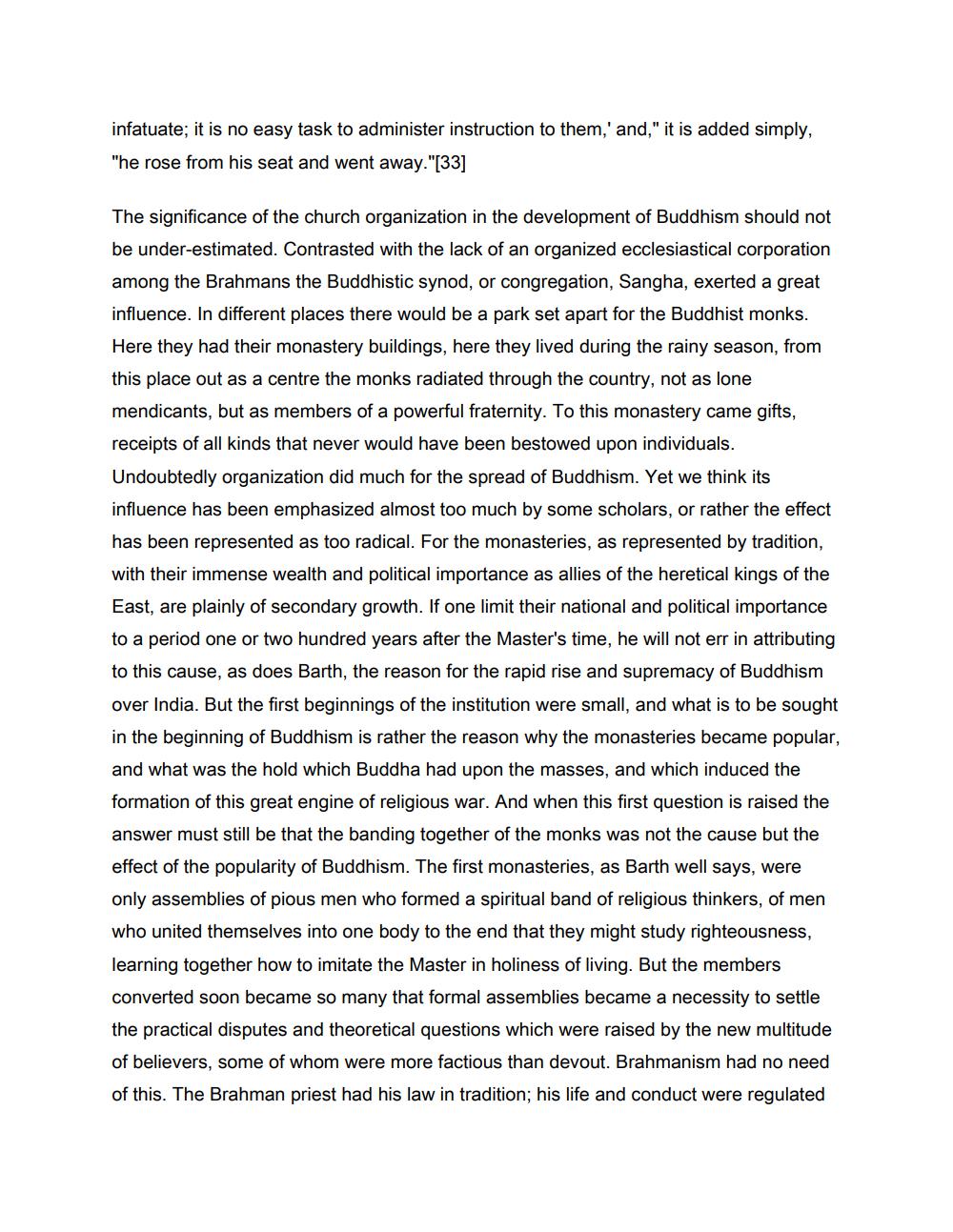________________
infatuate; it is no easy task to administer instruction to them,' and," it is added simply, "he rose from his seat and went away."[33]
The significance of the church organization in the development of Buddhism should not be under-estimated. Contrasted with the lack of an organized ecclesiastical corporation among the Brahmans the Buddhistic synod, or congregation, Sangha, exerted a great influence. In different places there would be a park set apart for the Buddhist monks. Here they had their monastery buildings, here they lived during the rainy season, from this place out as a centre the monks radiated through the country, not as lone mendicants, but as members of a powerful fraternity. To this monastery came gifts, receipts of all kinds that never would have been bestowed upon individuals. Undoubtedly organization did much for the spread of Buddhism. Yet we think its influence has been emphasized almost too much by some scholars, or rather the effect has been represented as too radical. For the monasteries, as represented by tradition, with their immense wealth and political importance as allies of the heretical kings of the East, are plainly of secondary growth. If one limit their national and political importance to a period one or two hundred years after the Master's time, he will not err in attributing to this cause, as does Barth, the reason for the rapid rise and supremacy of Buddhism over India. But the first beginnings of the institution were small, and what is to be sought in the beginning of Buddhism is rather the reason why the monasteries became popular, and what was the hold which Buddha had upon the masses, and which induced the formation of this great engine of religious war. And when this first question is raised the answer must still be that the banding together of the monks was not the cause but the effect of the popularity of Buddhism. The first monasteries, as Barth well says, were only assemblies of pious men who formed a spiritual band of religious thinkers, of men who united themselves into one body to the end that they might study righteousness, learning together how to imitate the Master in holiness of living. But the members converted soon became so many that formal assemblies became a necessity to settle the practical disputes and theoretical questions which were raised by the new multitude of believers, some of whom were more factious than devout. Brahmanism had no need of this. The Brahman priest had his law in tradition; his life and conduct were regulated




